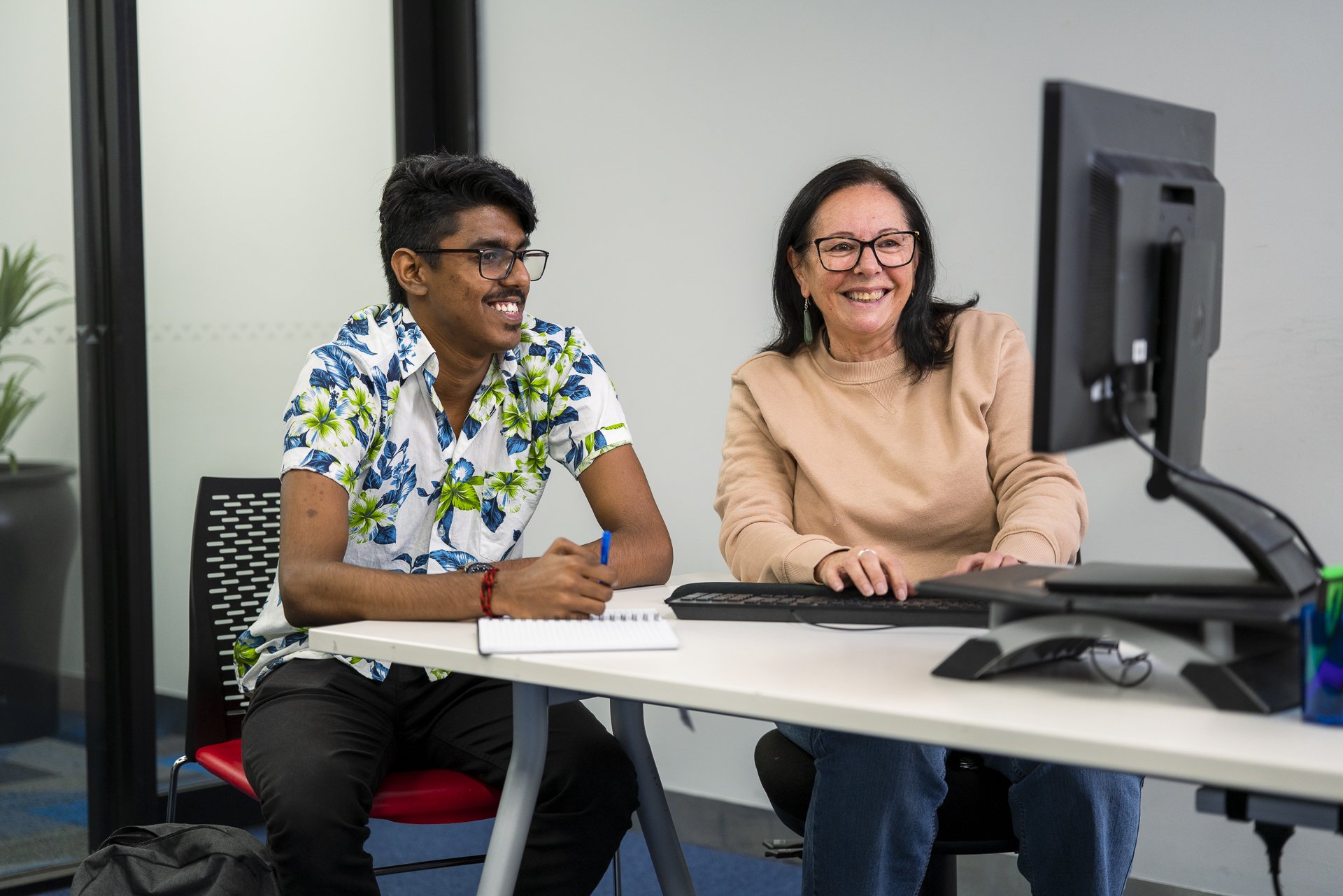How to talk to study and training providers, Me pēhea te kōrero ki ngā kaiwhakarato akoranga, whakangungu hoki
Updated 15 Dec 2025
Doing some planning can help you get the information you need from study and training providers.

Why talk to providersHe aha te take o te kōrero ki ngā kaiwhakarato?,
When you’re thinking about doing a study or training programme, you’ll have lots of questions for education providers.
Asking providers questions is a good way to help you decide if a study or training programme is right for you, so don’t be afraid to ask them.
Most providers have people whose job it is to help – so go ahead and ask all the questions you need to.
How to prepareMe pēhea te takatū,
Planning what to ask before contacting education providers will help you get the answers you need. Don’t worry if you have more questions later – you can always contact them again.
Check out these questions for tips on what to ask.
1
How much of the programme is hands-on and how much is in the classroom?E hia te rahi o te hōtaka he mahi ā-ringa, e hia te rahi kei rō akomanga?,
If you like hands-on learning, a programme that’s mostly classroom-based learning might not be for you.
2
Will the programme help me get into work?Ka āwhina te hōtaka kia whiwhi mahi ahau?,
Some providers arrange work-based training to help students into work.
3
Will I have choices about the subjects I study?Ka whai kōwhiringa ahau mō ngā marau e ako ana ahau?,
Most programmes have core subjects you must study and allow you to choose between others.
4
What do I need to do to get into the programme?He aha ngā mea e hiahiatia ana hei whakauru ki te hōtaka?,
You may need to meet entry requirements to get into your programme, like show you have relevant work experience, attend an interview or submit a portfolio. You can ask for tips on how to meet these requirements.
5
When do I need to apply?Āhea me tono atu au?,
Most programmes have closing dates – it’s important to know when these are so you can apply in time.
6
Where can I stay while I study or train?Ka taea te noho ki hea i a au e ako ana, e whakangungu ana rānei?,
If you need to live away from home, ask about accommodation options on campus and the cost, how easy it is to get in, how to apply, and when.
7
What kind of pastoral care do you offer?He aha ngā momo manaaki e tuku ana koutou?,
Pastoral care includes services to support student health and wellbeing, like gyms, health services, counselling and guidance.
8
What support can you offer for my impairment or condition?He aha te tautoko ka tukuna mai mō tōku waimaero, āhuatanga hauora rānei?,
Providers may offer advice and support to help you fully participate, like adaptive technology, accessible test facilities and mobility parking.
9
What kind of social activities are there?He aha ngā momo mahi whakawhanaunga?,
Providers may have groups you can join, like sports, special interest, LGBTI+, whānau or mature student clubs.
How to contact providersMe pēhea te whakapā ki ngā kaituku akoranga,
Here are some ways to contact study and training providers.
WebsitesNgā paetukutuku,
All provider websites have contact details for you to get in touch by email or phone. Some also have online chat so you can kōrero to someone in real time.
Choose the option that’s most comfortable for you.
Open daysNgā rā tuwhera,
Going to an open day at a polytechnic, wānanga, university, private training establishment or other training provider will help you get a feel for what it’s like to study or train there.
It will also give you the chance to ask questions in person.
Career expos and school visitsNgā taiopenga aramahi me ngā toronga ki ngā kura,
If you’re a school student you can visit a career expo online or in person. Or you can attend a career event arranged by your school.